Andrew King continues a series of interviews with key legal professionals with their innovation and technology stories.
Mark A. Cohen – Tell us about yourself?
I have spent my five-decade professional career reconciling an artistic spirit in an analytical profession. I’m a “whatever makes sense” person in a rigidly hierarchical field; an entrepreneur in a staid profession. My career as a bet-the-company trial lawyer enabled me to straddle the artistic and analytical. My decision to exit BigLaw as a partner to start my own national firm liberated me from hierarchical oppression and permitted me to create a more customer-centric organization. The opportunity to serve as outside GC to three large insurance industry clients and as a court-appointed Receiver of an international business enabled me to experience legal delivery from the customer perspective. Following this, I traded practicing law to reimagining the business of delivering legal services. That’s an expurgated version of how and why my career is where it is presently. I anticipate at least one more chapter has yet to be written.
What challenges are organisations facing in how they deliver legal services?
The biggest challenge is adaptation. The world—and business—is changing profoundly and rapidly. It’s not change around the edges; its paradigm change. In law, it’s the shift from provider to customer-centricity. This requires altering one’s mindset and indoctrination, and that’s not easy.
How have you adapted how you work?
I have always tried to envision how I can work most effectively and to meet customer objectives from their perspective and within the boundaries of legal and ethical considerations. That mindset has not changed, but the tools, resources, and processes have.
Is there anything you would do differently if you were starting over?
I would have started in business and then taken up law. It’s much more difficult to learn law first, then think like a business person. Legal education and training tends to focus on lawyers, not their clients/customers. That’s backwards and hard to undo. I learned on the job.
Are there any opportunities that you have found in how you have changed how you work out of the challenges of COVID-19?
The pandemic has not changed how the legal industry works so much as when and where it works. The same mindset and processes are in place; it’s just that technology that’s been around for decades is now being used.
How can legal tech help you innovate?
Legal tech is an enabler of innovation—one of its tools. It does not create innovation of and by itself. Innovation starts with identifying a problem worth solving, one that will improve the lives/outcomes for customers and society. Innovation requires a use case and, usually, multidisciplinary collaboration. People innovate; machines, new delivery models, and data help achieve impact for customers and society.
What are some of your practical tips to start innovating or developing an innovative mindset?
Not everyone is an innovator—few of us are. But we can all participate in helping to identify problems worth solving; processes and ways of doing things differently that can help end-users, etc. We can all look at what we do and how we do it from the customer perspective—and how what and how we do things could be improved. We all have been customers, and we know what makes a difference for us from that perspective. So, why not apply that to what we do as providers?
What changes do you see in how legal services are delivered in the future?
I have written and spoken extensively on this topic. Here is one of my recent Forbes articles that addresses the question: https://www.forbes.com/sites/markcohen1/2022/05/31/new-law-you-aint-seen-nothin-yet/
Why is it important for legal professionals to be learners for life and continue to upskill throughout their careers (and lives).
Law was once about securing licensure and honing one’s craft during the span of a career (usually in one or maybe two jobs). Now, a legal degree—like so many other fields—is just the start of a career-long process of adapting to change; learning new skills; connecting seemingly disparate perspectives and disciplines; and evolving as a human being and professional. And on that last point, I have never separated my humanity from my professional persona—they are one and the same. Some call that “authenticity.” Law has tended to cause people to conform to someone or something they may not be. That’s not good for one’s psyche or career. We are all different but should be united by a common purpose: to do better for our customers and society.
Andrew King is the founder of Legal Innovate (https://legalinnovate.nz/). He helps lawyers and organisations innovate through leveraging technology to help improve the way they deliver legal services. Legal Innovate includes LawFest (https://www.lawfest.nz/), LegalTech Hub (https://legaltech.nz/) and E-Discovery Consulting (https://www.e-discovery.co.nz/).
